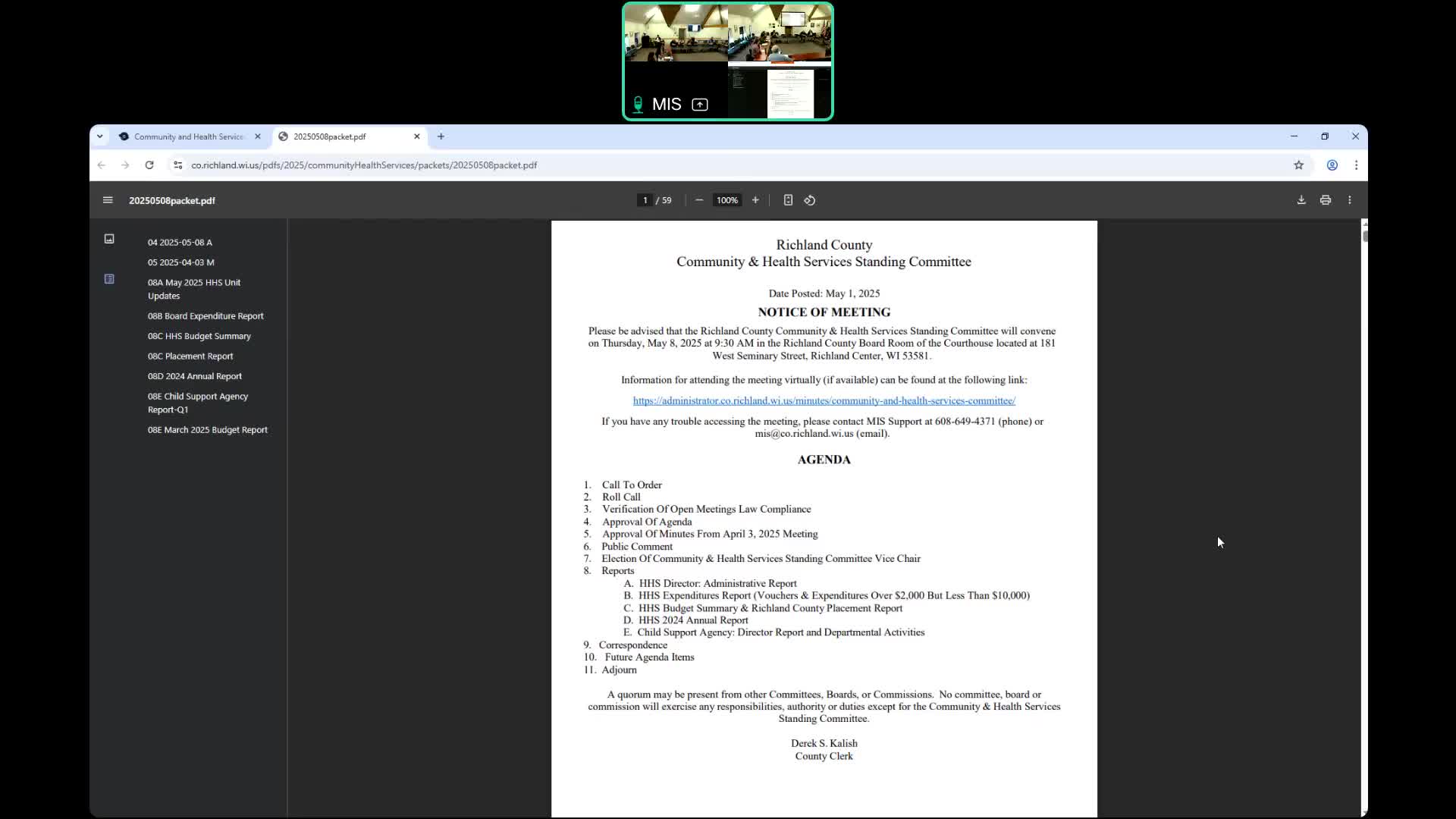Article not found
This article is no longer available. But don't worry—we've gathered other articles that discuss the same topic.

Standing committee elects Kramer as vice chair by voice vote

Public health unit: level 2 designation, immunization work and lead/rabies follow-ups highlighted
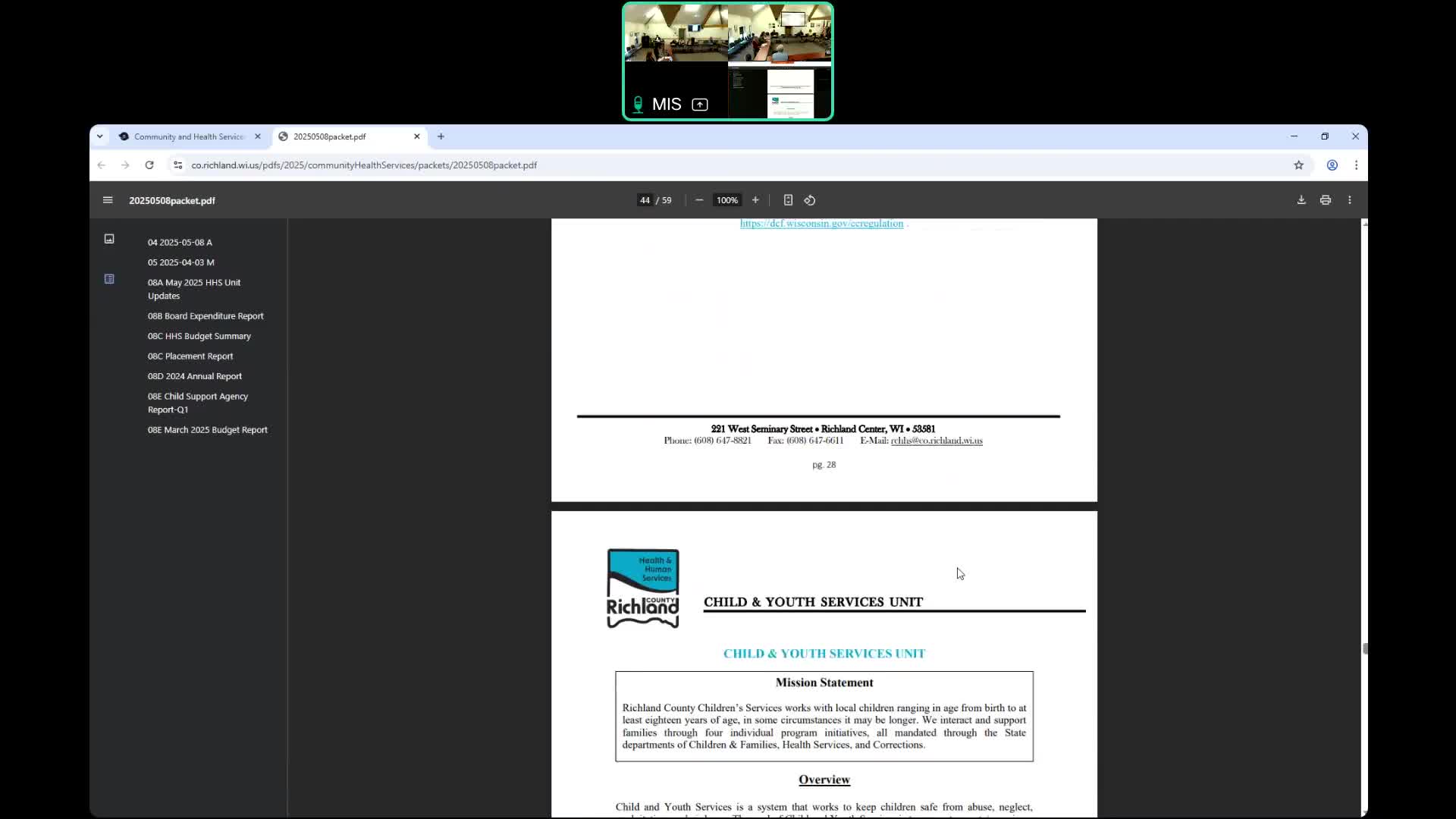
Child and youth services report: high CPS referrals and no licensed foster homes in-county; kinship and guardianship numbers tracked
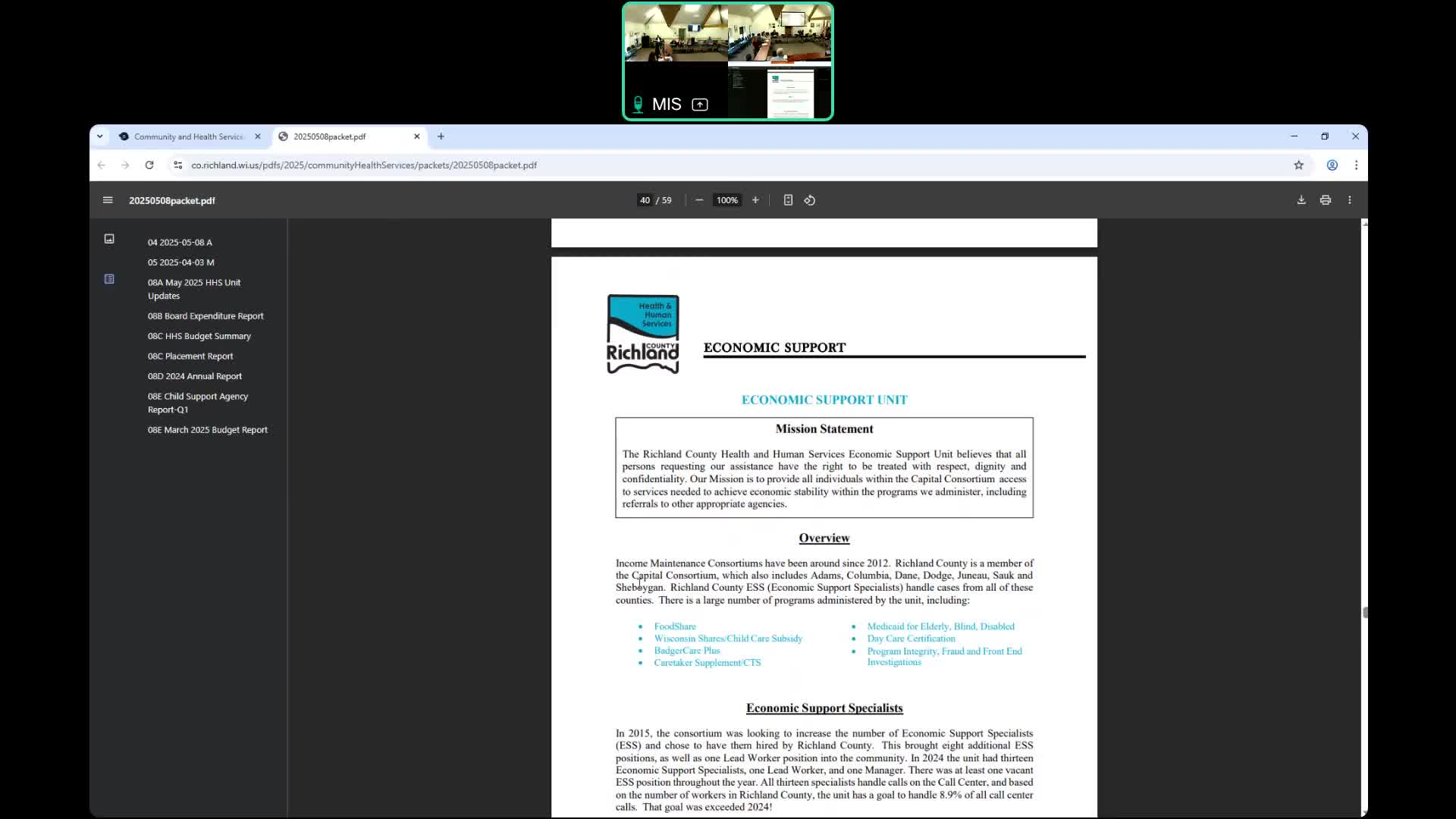
Economic support unit: consortium call volumes high, timeliness benchmarks exceeded, FoodShare brings nearly $4 million to county
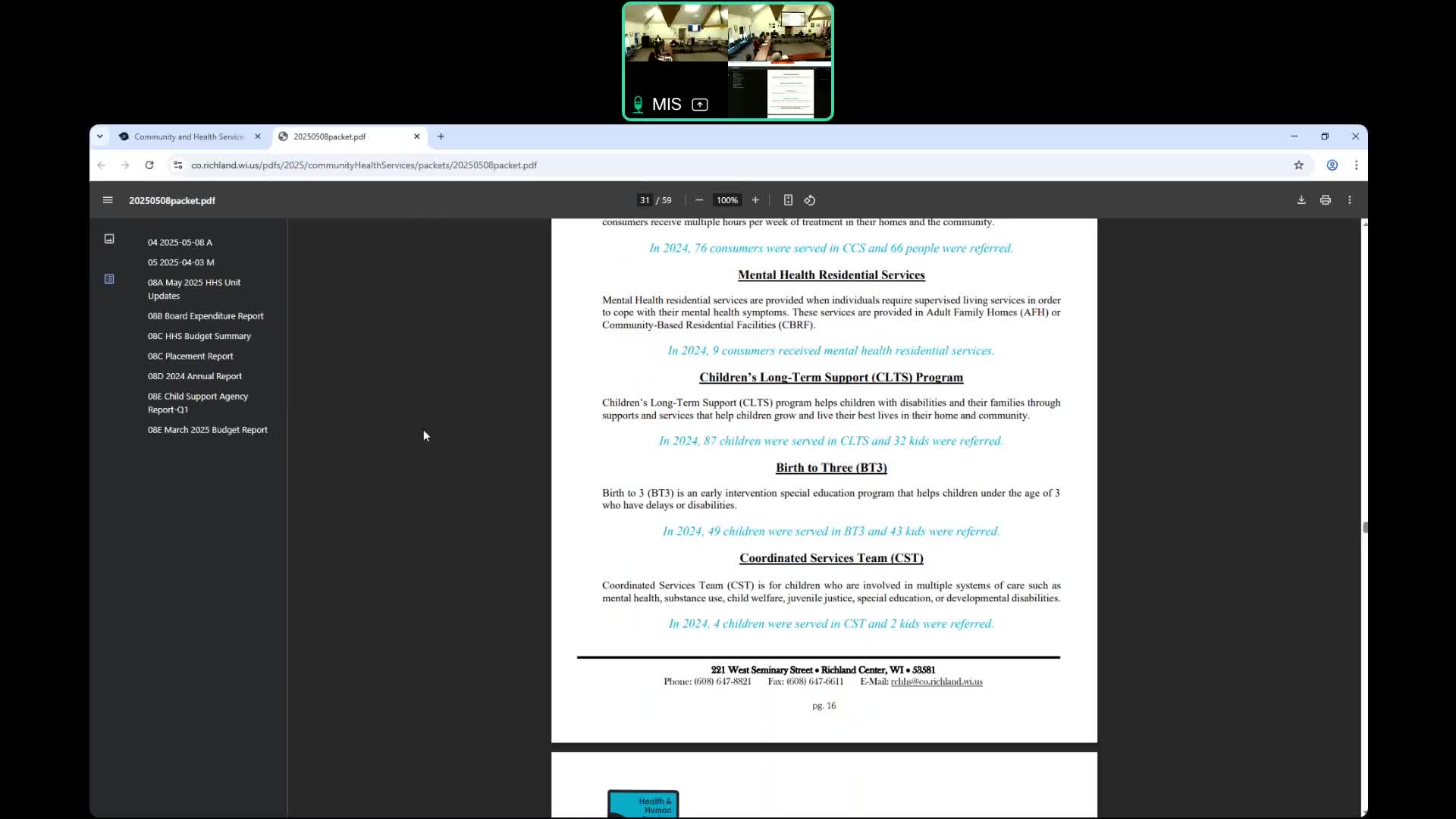
Aging & ADRC report: high demand for meals and transportation, volunteer shortages constrain service expansion
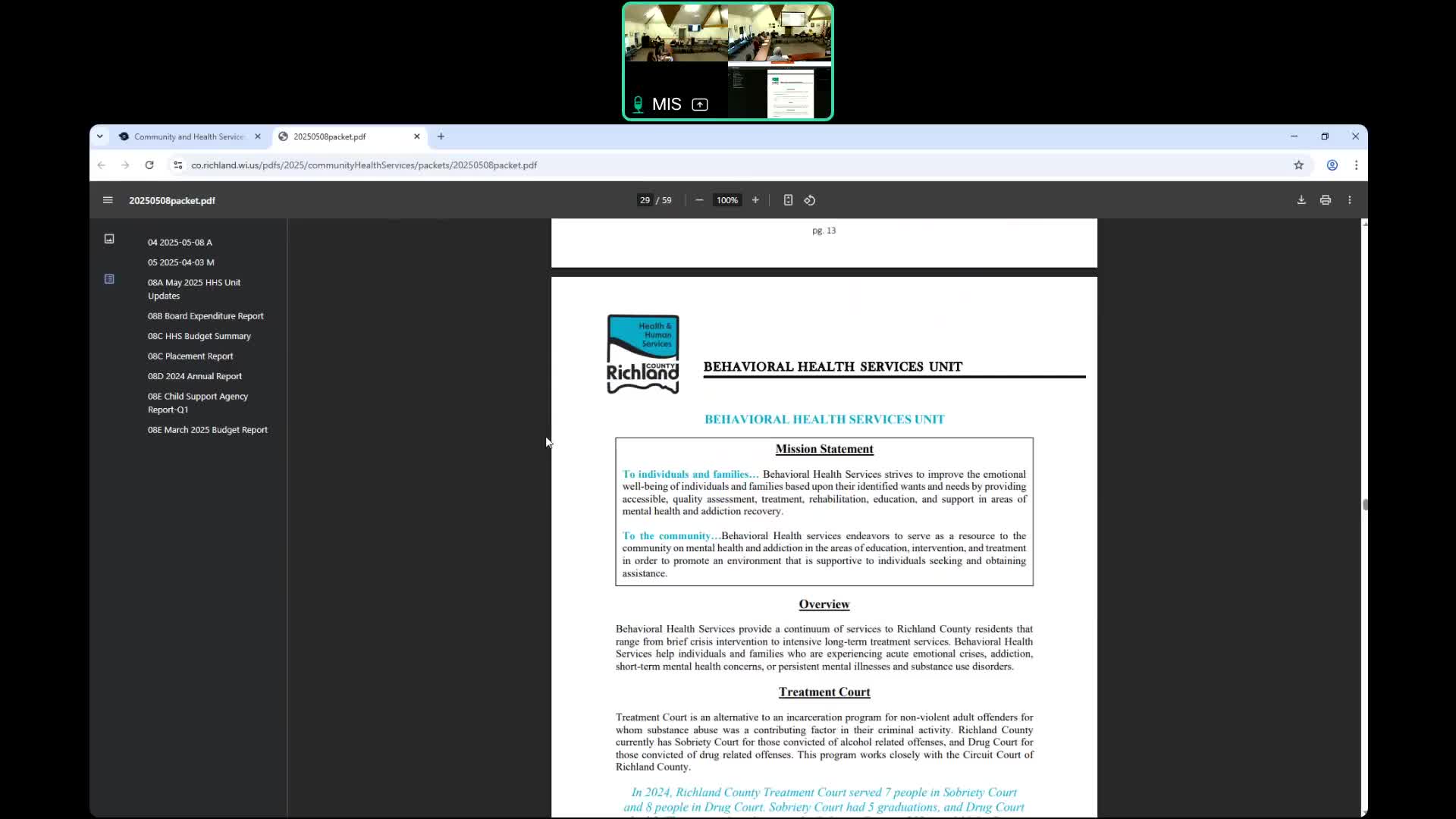
Behavioral health staff report rising crisis contacts and emergency detentions; unit fully staffed but needs more crisis/AP workers
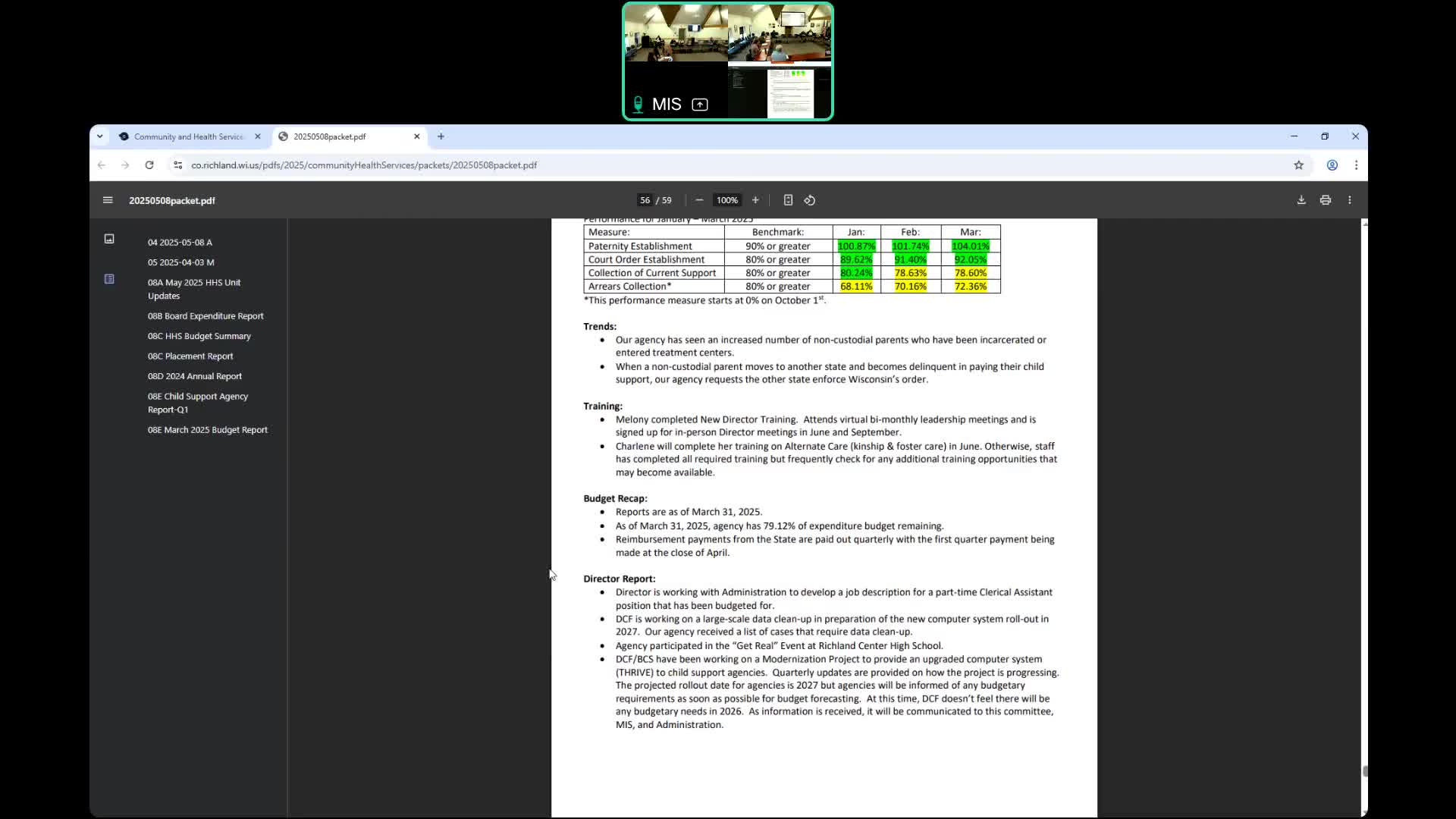
Richland County Health & Human Services highlights financial surplus, Tyler system rollout and staffing needs
